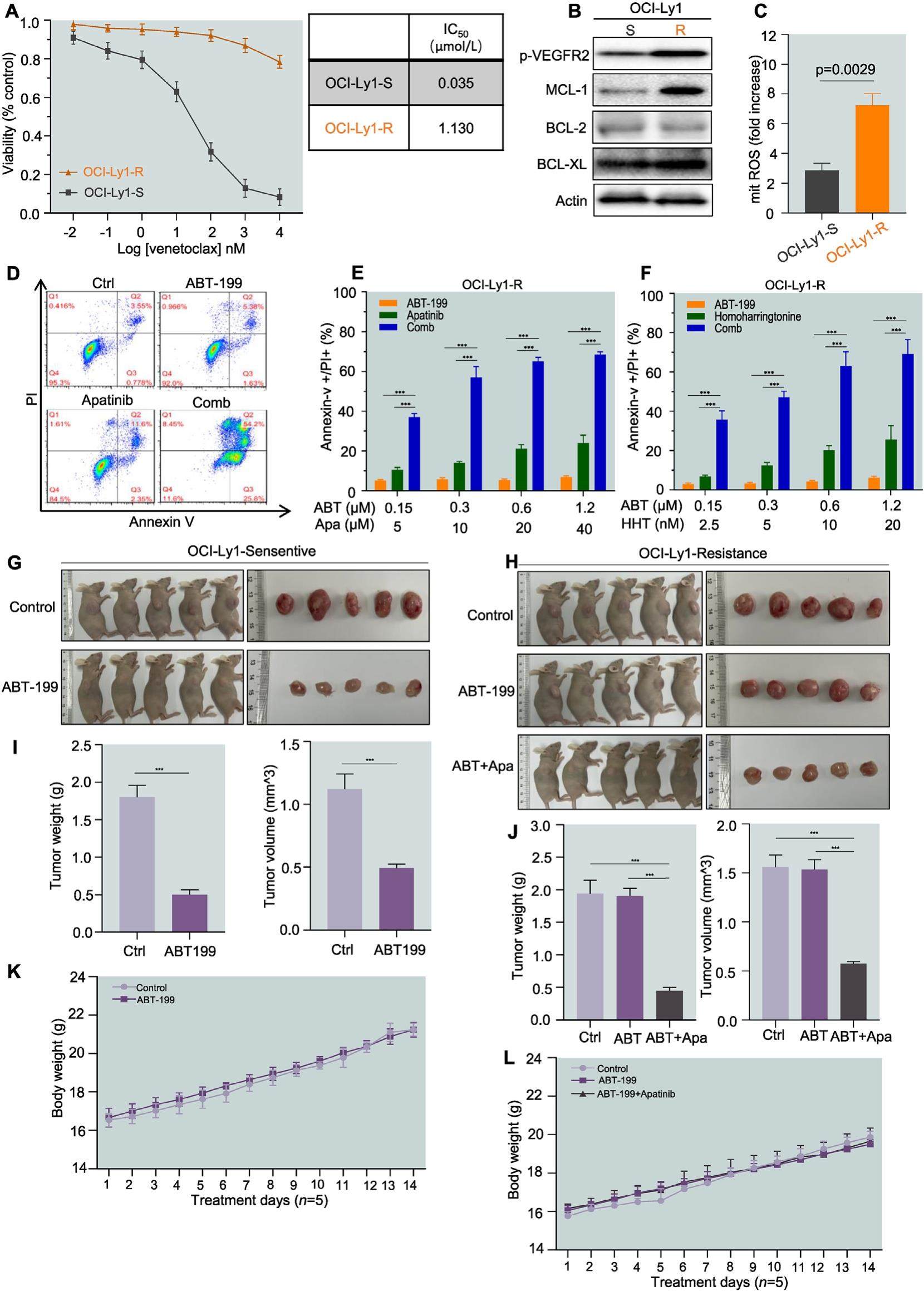
Inhibition of VEGFR2 overcomes venetoclax-resistance in diffuse large B-cell lymphoma cells


ABT-199 (venetoclax) induces cell apoptosis in lymphoid malignancies mainly through the mitochondrial apoptosis pathway. However, long-term use of ABT-199 causes secondary drug resistance, which limits its use. Here, we show that the acquired resistance to ABT-199 in diffuse large B-cell lymphoma (DLBCL) cells is related to the upregulation of phosphorylated vascular endothelial growth factor receptor 2 (p-VEGFR2), BCL-XL and MCL-1. To identify determinants of resistance, we conducted ABT-199-resistant cell lines. We found that VEGFR2 drove the ABT-199 resistance in addition to the known involvement of the B-cell lymphoma 2 (BCL-2) family members. Notably, we also found that the ABT-199 resistance was associated with the increased production of reactive oxygen species (ROS) in ABT-199 resistant cells. Thus, combinatorial therapy with Apatinib and ABT-199 may offer a new approach to address ABT-199 resistance.
